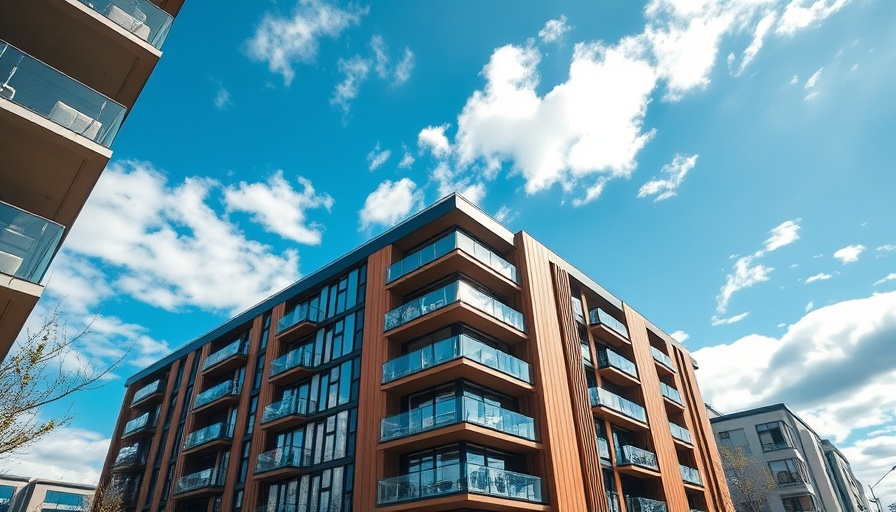
Understanding the Rental Landscape of 2025
As we look ahead toward 2025, the rental market is steadily evolving, shaped by technological advances and shifting social dynamics. For many potential renters, understanding what to expect is essential. Today’s renters are more informed than ever, utilizing online platforms and mobile apps to streamline their search. This article outlines ten steps that will empower renters to navigate this complex landscape.
Step 1: Assess Your Financial Situation
Before entering the rental market, it is crucial to evaluate your financial standing. Calculate your budget by considering your income, existing debts, and the average rent in your desired location. Financial experts recommend that housing costs should not exceed 30% of your income. By setting a realistic budget, you will avoid any financial strain while maximizing your living conditions.
Step 2: Get Pre-approved for Rental Applications
Much like purchasing a home, securing a rental often requires some form of pre-approval. Many landlords now request a credit report or proof of income to ensure tenants can meet their rental obligations. Taking the time to obtain these documents in advance can speed up the application process and indicate your reliability as a tenant.
Step 3: Research Different Neighborhoods
Location can greatly impact your rental experience. Research various neighborhoods, focusing on factors such as safety, amenities, and commute times. Tools like Google Maps can provide visual insights into local amenities, while community forums can give perspectives on livability.
Step 4: Utilize Online Rental Platforms
The rise of technology has revolutionized the apartment hunting experience. Websites and apps such as Zillow, Apartments.com, and Virtual Apartment Tours provide potential renters with extensive listings that can be filtered by price, size, and amenities. This allows for a more efficient search, catering to individual needs and preferences.
Step 5: Visit Apartments in Person
While virtual tours offer convenience, nothing compares to visiting a space in person. Scheduled visits provide an opportunity to inspect the apartment for issues that may not be evident in pictures. Additionally, visiting the neighborhood at different times can give you a sense of its true atmosphere.
Step 6: Prepare for Background Checks
Most landlords will perform background checks before agreeing to rent. This may include credit checks and verifying rental histories. Being prepared with documentation such as references and proof of income can help facilitate this process. Transparency about past rental experiences can also prove beneficial.
Step 7: Ask the Right Questions
When you find a promising apartment, ensure to engage with the landlord or property manager by asking thoughtful questions. Inquire about policies regarding pets, maintenance procedures, and who is responsible for utilities. Gaining clarity on these aspects allows for a smoother transition and helps avoid potential conflicts later.
Step 8: Review the Lease Agreement Carefully
Once you have chosen an apartment, it’s time to review the lease agreement. Pay attention to critical details such as the length of the lease, rent payment due dates, and any restrictions the landlord may impose. If possible, discuss terms that may seem unfair, as some landlords might be willing to negotiate.
Step 9: Plan for Moving Day
Moving into a new apartment is both exciting and challenging. Start planning your moving day in advance by organizing your belongings and considering professional movers or rental truck services. This proactive approach can alleviate stress and ensure a smooth transition into your new home.
Step 10: Cultivate a Positive Relationship with Your Landlord
Once settled in, building a good rapport with your landlord can lead to a better living experience. Communicate openly about any issues that arise and ensure timely rent payments. Establishing respect and trust can benefit both parties in the long run.
Future Trends in Apartment Rentals
As we dive deeper into the future, several trends in apartment rentals are expected to emerge. Increasing demand for smart homes, sustainability practices, and eco-friendly living spaces will reshape what renters seek. Landlords may begin to integrate more technology and energy-efficient solutions to meet these expectations. Understanding these trends provides insight into future rental markets and potential investment opportunities.
Unique Insights on Renting
In this evolving market, it is essential for renters to stay informed and adaptable. The rental landscape is influenced by not just individual circumstances but broader economic factors as well. Awareness of industry trends can position renters to make informed decisions, allowing them to secure ideal living arrangements in a competitive market.
As we approach 2025, the rental landscape is not just about finding an apartment; it’s about preparing holistically for future living. By following these steps and keeping the emerging trends in mind, you can navigate the rental process with confidence and ease.
 Add Row
Add Row  Add
Add 




 Add Row
Add Row  Add
Add 

Write A Comment